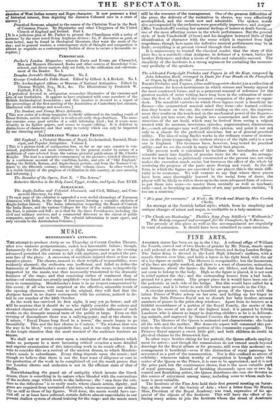The celebrated Forty-eight Preludes and Fugues in all the Keys,
composed by John Sebastian Bach, arranged in Duets for Four Hands on the Pianoforte or Organ, by Henry Bertini. Book I.
BACH'S Preludes and Fugues, (Bas wohl temperirte clavier,)as a collection of compositions for keyed-instruments in which science and beauty appear in the most condensed forms, and as a perpetual manual of reference for the greatest models of strict writing, have long been in the estimation of musicians the first of books and the constant companion of the piano or organdesk. The manifold varieties in which these fugues exert a beneficial influence—the symmetrical musical mind they form—the learned cultivation they bestow on the ear, the correct reading on the eye, the improvement they confer on the touch and on the mechanical power of the fingers— and, when put into score, the insight into counterpoint and into the abstractions of the art itself, which may be derived from seeing a subject treated with its answers, inversions, episodes, augmentations, diminutions, &c.,—such advantages may well justify this opinion, and. point it out not only as a classic for the professed musician, but as of general practical utility. The idea of using Baclis works in th ordinary course of instruction on the piano (supposing the student always of the right sort) is a new one in England. The Germans have, however, long tested its practical utility; and we see the result in many of their best players.
The present work is calculated to facilitate the introduction of this scientific music into families of genuine taste for the art. An arrangement for four hands so judiciously constructed as the present one, not only makes the execution much easier, but increases the effect of the whole by rendering the progress of the parts more flowing and vocal. In the old form, in which the fugues are executed by one player, this is the main difficulty to he overcome. We will venture to say that where these pieces have been once thoroughly learned in the social form of duets, the player will be likely to follow them up in the more advanced form of solos— to put them into score—to master them mentally as well as mechani,. cally—and, so breathing an atmosphere of art, may perchance exclaim, "I too am a musician."






















































 Previous page
Previous page